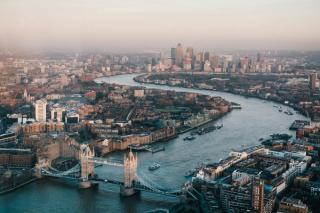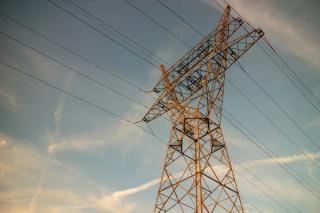
ULEZ: A key battleground in the London Mayoral Election
- Post Date
- 29 April 2024
- Read Time
- 4 minutes

As London braces itself for the forthcoming mayoral elections on May 2nd 2024, one acronym has dominated discussions across the city: ULEZ, or the Ultra Low Emission Zone. Conceived as a measure to reduce vehicle emissions, the ULEZ has emerged as a key battleground in the race for City Hall, shaping political discourse and sparking widespread debate.
Since its implementation in April 2019 under Mayor Sadiq Khan’s leadership, the ULEZ has undergone significant expansion. Originally proposed by Boris Johnson in 2015, it initially covered Central London but has since grown to encompass all of Greater London as of August 2023, despite facing legal challenges. It has also been the target of organised vigilante vandalism, prompting the Metropolitan Police to launch “Operation Eremon.”
The primary goal of the ULEZ remains clear: to improve air quality by discouraging the use of high-polluting vehicles. With nearly nine million inhabitants, London has long grappled with air quality issues, posing significant health risks particularly to vulnerable groups such as children, the elderly, and ethnic minorities. Research from Imperial College London highlighted the dire consequences of air pollution in London, with around 4,000 premature deaths attributed to it in 2019 alone [1]. The tragic case of nine-year-old Ella Kissi-Debrah from Lewisham, South London, whose 2013 death was linked to air pollution, emphasises the urgency to address this issue [2]. Following Ella’s death, the Coroner recommended that the Mayor take decisive action to clean up London’s air to prevent future fatalities [3].
However, the ULEZ also carries socio-economic implications, affecting businesses, commuters, and residents alike. Critics argue that it places an undue burden on small businesses and low-income households, exacerbating existing financial strains. In recognition of this, the Mayor has allocated £271m since 2019 to support Londoners transition to cleaner vehicles. Moreover, proponents of the ULEZ are keen to emphasise that air pollution disproportionately impacts the city's most vulnerable populations [4].
Preliminary analysis conducted by the Greater London Assembly and Transport for London indicates that the ULEZ has led to a significant reduction in nitrogen dioxide (NO2) concentrations, the primary pollutant responsible for asthma attacks, cardiovascular issues and pregnancy complications [5]. Notably, the number of monitoring sites recording NO2 levels above legal limits decreased from 56 in 2016 to just five in 2023.
These outcomes are crucial for Sadiq Khan's mayoral re-election bid against the Conservative candidate Susan Hall, who pledges to reverse the ULEZ if elected on her first day. However, the analysis is based on provisional data, and will not be fully available until after the Mayoral Election. While this delay in the ratification process is normal and widely accepted by air quality practitioners, this poorly timed misunderstanding has heightened the debate over transparency and trust in governance.
The ULEZ debate illustrates the importance of inclusive policymaking, incorporating diverse perspectives to shape equitable solutions. Regardless of the election outcome, the ongoing discourse surrounding the ULEZ emphasises the urgent need for collaborative solutions prioritising the well-being and socio-economic prosperity of Londoners.
As the election season unfolds, air pollution seems to be moving up the agenda and taking centre stage in national and local conversations. However, in today's politically charged climate, it's imperative we maintain open dialogue and prioritise consensus-building.
-------------------------------------
References
[1] https://erg.ic.ac.uk/research/home/resources/ERG_ImperialCollegeLondon_HIA_AQ_LDN_11012021.pdf
[2] https://www.bbc.co.uk/news/uk-england-london-55330945
[3] https://www.judiciary.uk/wp-content/uploads/2021/04/Ella-Kissi-Debrah-2021-0113-1.pdf

